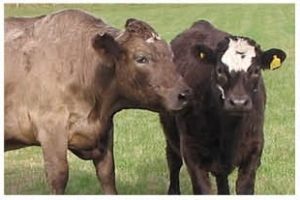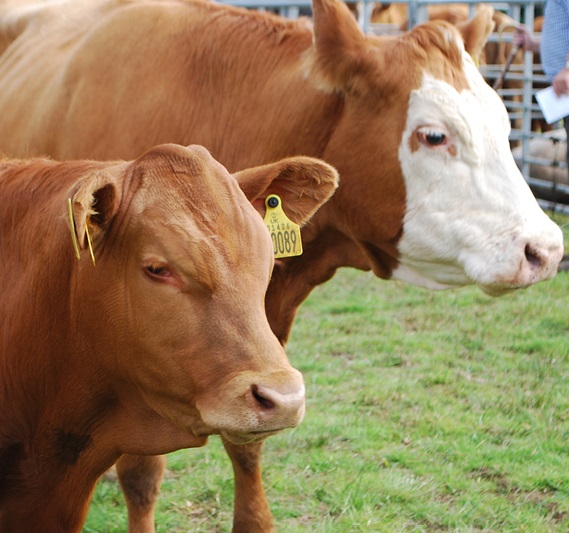Magnesium Supplementation For Cows
20 April 2018 With a lack of grass and a flush of grass to come it is important to remember about magnesium supplementation. Magnesium is not stored and a daily dietary intake is required and if output exceeds intake then cows are at risk of staggers. Lactating spring calvers are most at risk due to the demands of milk production. Lush, fast growing grass doesn’t have as much magnesium in it has a high rate of passage so less time for absorption. Target intake is around 25-30g of magnesium/cow/day or 2.5g/kg of dry matter intake.
With a lack of grass and a flush of grass to come it is important to remember about magnesium supplementation. Magnesium is not stored and a daily dietary intake is required and if output exceeds intake then cows are at risk of staggers. Lactating spring calvers are most at risk due to the demands of milk production. Lush, fast growing grass doesn’t have as much magnesium in it has a high rate of passage so less time for absorption. Target intake is around 25-30g of magnesium/cow/day or 2.5g/kg of dry matter intake.
Methods of supplementation in the energy they will supply:
- Hi Mag rolls, normally 1kg supplies daily Magnesium requirement (check with supplier) these are easy fed on the ground.
- Mineralising your own cereals, cheaper but need to account for wastage when feeding on the ground and possibility losing mineral on the ground – 100g/head of a 25% magnesium mineral required.
- Molasses licks
- Hi Mag buckets or free access mineral – aim around 20% mag in buckets and 25% mag for powdered minerals. Downside is you are relying on all cows taking the mineral – ensure good access to minerals/enough buckets are put out for the number of cows.
- Slow release Magnesium bolus, lasts 4 weeks (1 application, 2 boluses/cow)
- Treating water supply – not as effective at grass, takes managing, shouldn’t be relied on.
Points to note:
- High potash levels can disrupt magnesium absorption
- Lactating cows are most at risk and cows under nutritional stress
- The less stress the better – if there is no grass in the fields cows will need supplemented for energy as well as for magnesium
- Before you turn cows out ensure good magnesium supplementation in the days running up to going out
- Turn cows out with a full belly and if possible on a good day
Sign up to the FAS newsletter
Receive updates on news, events and publications from Scotland’s Farm Advisory Service

